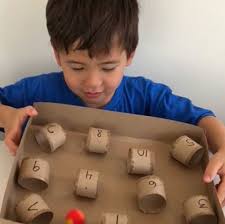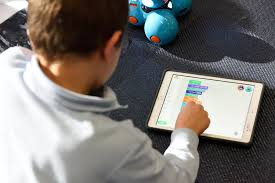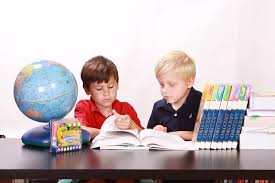How can I help my 3 year old with language development?
Here are some ways you can encourage your toddler’s speech:
- Talk directly to your toddler, even if just to narrate what you’re doing.
- Use gestures and point to objects as you say the corresponding words.
- Read to your toddler.
- Sing simple songs that are easy to repeat.
- Give your full attention when talking to them.
What game can a 3 year old play?
The best games for 3-year-olds teach social skills, logic and reasoning.
Active games
- Twister. This game “teaches little ones about the parts of the body and helps them to learn colors,” says Heim.
- Kickball. Help your tyke develop gross motor skills!
- Don’t Drop the Ball.
- Bowling.
- Scavenger Hunt.
Can a 3 year old learn a new language? And, children around the age of three or four can learn through play because they are not yet overwhelmed by facts and information that needs to be stored and assessed, which is something that happens as we grow older. “Bilingual children that learn a second language from an early age sound like a native in both.”
What are the 4 language games?
Language Learning games for the classroom are one of the best ways to promote language learning.
- Twenty Questions. Why Play This Game?
- Pictionary. Why Play This Game?
- Taboo. Why Play This Game?
- Stop! Why Play This Game?
- Hangman. Why Play This Game?
- Spiderweb. Why Play This Game?
- Word Jumble. Why Play This Game?
- Charades.
How can I help my 3 year old with language development? – Additional Questions
What are some language activities for toddlers?
Language Activities for Toddlers by Speech Therapists
- Building Blocks. Building towers and similar structures isn’t just a fun game to play; it also provides ample opportunity to work on language skills.
- Role Play.
- Talk Your Way Through the Day.
- Listen to Music.
- Explore Books Together.
What are fun ways to teach language?
Fun activities that help develop language learning in children
- Word games. Expand your children’s vocabulary with word games.
- Jokes. Telling age-appropriate puns will also help foster good humour and creativity in children.
- Riddles.
- Rhymes.
- Homonyms.
- Storytelling.
- Songs.
- Tongue twisters.
What are types of language games?
List of common language games
| Host Language |
Name |
| English |
Polysyllabic ollysllabic |
| English |
Cockney rhyming slang |
| English |
Gibberish |
| English |
Inflationary English |
What are language games explain?
Wikipedia. Language game. A language game (also called secret language, ludling, or argot) is a system of manipulating spoken words to render them incomprehensible to the untrained ear. Language games are used primarily by groups attempting to conceal their conversations from others.
What is language game in teaching English?
Importance of Language Games in Learning English
The learners understand better when they are active. If games are properly designed, they may help in making the teaching-learning process more effective. Games provide language practice in all the four skills, namely, reading, speaking, listening, and writing.
What are Wittgenstein’s language games?
A language-game (German: Sprachspiel) is a philosophical concept developed by Ludwig Wittgenstein, referring to simple examples of language use and the actions into which the language is woven. Wittgenstein argued that a word or even a sentence has meaning only as a result of the “rule” of the “game” being played.
Are language games cognitive?
All forms of life have their own language and have their own rules concerning meaning. The language in the game is non-cognitive, because it is not about making universally true statements, but about communicating meaning to other players in the same game.
What are the benefits of language games?
Benefits of language games are listed below :
- Enjoyable method of learning language.
- Help to improve vocabulary.
- Increase motivation for learning language.
- They promote communication in English language.
- They provide meaningful situations for practicing language.
- Reduce anxiety related to learning and making errors.
How do you make a language game?
Language games at the primary level should be extremely simple. The language should include a limited number of structures and vocabulary items. The teacher should start with highly contextualized drills in the form of questions and short responses, simple one word substitutions or fixed phrases.
Are educational language games effective in the classroom?
According to Richard-Amato (1996), even though games are often associated with fun, we should not lose sight of their pedagogical values, particularly in second language teaching. Games are effective because they provide motivation, lower students’ stress, and give them the opportunity for real communication.
How do you teach grammar games?
Play fun online grammar games for FREE! Reading Eggs and Reading Eggspress make learning grammar, vocabulary, and comprehension skills fun for young kids.
5 Fun Grammar Games for Kids
- Sentence building game.
- Spot the mistakes.
- Play the Simon Says of grammar.
- Cap‑ital letters.
- Present and past tense matching game.
Why songs and games are important in teaching children language skills?
They are valuable resources to expand students’ abilities in listening, speaking, reading, and writing. They can also be exercises to teach a variety of language matters such as sentence patterns, vocabulary, pronunciation, rhythm, adjectives, and adverbs.
Do kids learn better through games?
According to research, using games in teaching can help increase student participation, foster social and emotional learning, and motivate students to take risks. One study of the popular multiple-choice quiz game Kahoot found that it improved students’ attitudes toward learning and boosted their academic scores.
What is language play in child development?
Language Development. Play is one of the most important ways that children learn about the world. When children play with adults and other children, they learn how to get along with others, to problem solve, and how to communicate and use language effectively.
What are the five principles of language assessment?
There are five major principles of language assessment; practically, reliability, validity, authenticity, and wash back. Teaching is not only about delivering knowledge to the students but also about constructing students’ understanding.
What makes a good language assessment?
Reliable:
Reliability is consistency, dependence, and trust. This means that the results of a reliable test should be dependable. They should remain stable, consistent, not be different when the test is used on different days).
How do you create a classroom language test?
DESIGNING CLASSROOM LANGUAGE TESTS
- What is the purpose of the test?
- what are the objectives of the test?
- How will the test specifications reflect both the purpose and the objectives?
- How will the test tasks be selected and the separate items arranged?
- What kind of scoring, grading, and or feedback is exoected?




